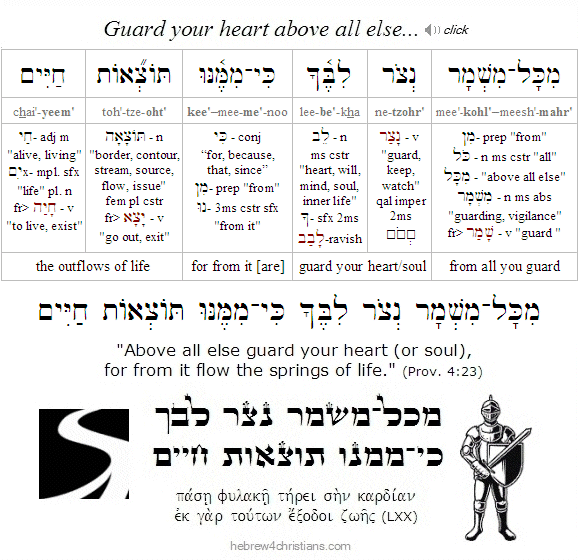|
From our Torah portion this week we read: "Speak to the children of Israel, and say unto them, 'When ye are passed over into the land of promise… drive away all the inhabitants of the land before you; destroy all their carved images, all their molten images, and demolish their high places'" (Num. 33:51-52). The Hebrew term for idolatry is "avodah zarah" (עֲבוֹדָה זַרָה), which literally means strange or "foreign" worship... The worship of anything other than the true God, whether it is pleasure, money, fame, control, security, self-improvement, health, religion, etc., is regarded as foreign, since it alienates us from the truth of reality. We were created to be in relationship with God but we lose sight of this truth whenever elevate what is finite to the status of the infinite. Indeed idolatry is the substitution of what is not-god (לא־אֵל) for the sacred, absolutizing the present and worshiping the temporal. Since our greatest good is found in the eternal verities of the divine communion, the Lord cannot give us an absolute good apart from Him, since there literally is no such thing. "No one can serve two masters," Yeshua said, and "a divided house cannot stand." For our own good, then, God necessarily is the Ultimate Concern of our life, and he wants to spare us the pain, disappointment, and trauma of being double-minded, disintegrated, and full of inner conflict. Spiritual warfare therefore means taking every thought captive before the bar of God's truth, rooting out and destroying all our inner idols so that we can be delivered from the anguish of uncertainty and ambivalence.
What is at stake here is your inner life, or rather the threat of the disintegration of your deepest essence into a fragmented multiplicity without center... The soul must be grounded in Reality or it is lost, dissipated in existential dread and despair. Yeshua said that when your eye is "single" (ἁπλοῦς), your whole being will be full of light (Matt. 6:22), which means that being single-minded and wholehearted unifies and heals the soul.... Being pulled in opposite directions is both painful and debilitating, for there is no overarching reason to direct the will in its decisions. Hating and loving the good is the ambivalence of despair. Being both willing and unwilling weakens the soul, but seeking the good and making God your ultimate concern binds up the broken heart and centers the will. "Your faith has made you whole..."
"Keep your heart with all vigilance, for from it flow the springs of life" (Prov. 4:23). The heart, that is, the willing and desiring center of the self, is to be proactively guarded, and for this sacred task God offers us heavenly comfort and resolve. Courage does not chase away or deny fear and despair, but instead gives us determination to persevere despite these feelings. "Why are you cast down, O my soul, and why are you in turmoil within me? Hope thou in God" (Psalm 42:11). Courage expresses hope in the midst of the struggle; it finds strength to confront pain, danger, or grief with God's help. Courage is grounded in the decision to trust that God is with us, despite our circumstances or feelings of abandonment. How you choose to guard your heart from the corruption and hardness of the world will determine the "road" of your life. If you do not care to keep your heart open and soft, you will become cynical, weary, and more and more selfish. Your way will be lonely, suspicious, and dangerous. If, however, you keep yourself from the hardness of unbelief, you will experience compassion, encouragement, and the joy of loving others.
Hebrew Lesson:
Proverbs 4:23 Hebrew reading (click)
 |
|



